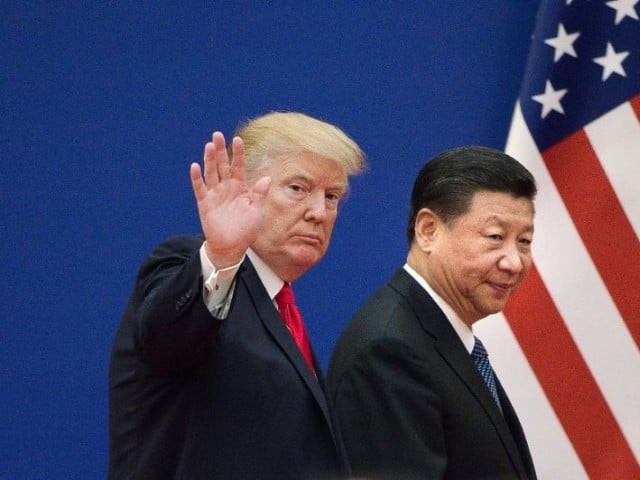Trump's trade beef with China may backfire on meat
Beijing's retaliatory tariffs on US pork, beef are making them prohibitively expensive

PHOTO: FILE
Beijing's retaliatory tariffs on US pork and beef are making them prohibitively expensive and Chinese importers are simply turning to other sources, a trend expected in other sectors as well. "When the US prices go so expensive after the duties... we will source from other origins," said Zhang Lihui, Shanghai manager for global meat company PMI Foods.
"Like for beef, we will buy more from Australia, we will buy more from South America, and maybe a little bit more from Canada." PMI Foods has already ceased importing cuts of US pork meat into China after Beijing's tariffs -- imposed last month in response to Trump's initial duties on Chinese goods -- drove prices up. Shifting trade patterns caused by the tariff battle will "definitely" benefit other countries at the US's expense, Zhang said.
Trump poised to unveil China trade sanctions for theft of US intellectual property
"The Chinese market will certainly look for replacements," she said. The outcome of the trade battle, spread across a range of sectors, remains hard to predict. But analysts warn that US exporters will lose significant China business. The US exported around $140 million worth of pork, beef and related by-products to China in June, before tariffs kicked in, according to the US Meat Export Federation, about 10 percent of all US beef and pork exports. China is clearly targeting imports of commodities such as meat, soybeans, wheat and petrochemicals that are easily replaced in the global market, said Julian Evans-Pritchard, a China economist with Capital Economics.
"That's the idea of tariffs: you are trying to hurt the other side while not hurting yourself too much," he said. "I think (the trade war) could lead to some quite significant shifts in the flow -- which country getting what from where." The impact on prices of imports, however, will be largely negligible as "the global trade system is quite flexible," he added, and because suppliers on both sides will absorb much of the tariff costs themselves to maintain their exports.
That is the case with Lin Zhengu, chef and owner of Shanghai's upscale Stone Sal steak restaurant, which serves mainly high-end American and Australian beef. Costs of prime US beef cuts are already up 30-40 percent due to the trade war, Lin said, but he and his US suppliers are eating the losses themselves rather than pass them on to customers. "The only way we will switch to other (non-US) beef is if the gate is totally closed. For now, we still want to work with our suppliers and farms," he said.
Chamber of Commerce warns Trump against China tariffs
Trade experts say some of the most valuable US exports to China such as Boeing aircraft and American-made cars are threatened as China can instead import Airbus jets or autos from Europe and Japan. Even US soybeans, seen as a key American leverage point due to the massive quantities China imports, might not be irreplaceable.
The head of Chinese state grain trading giant Cofco said it was looking at increasing imports of soybeans from Brazil, and other grains from places such as Ukraine and Russia. Shanghai Xinshangshi International Trade Co, a major formerly state-owned Chinese food importer, brought in $40 million worth of US beef and pork in 2017 and had planned to raise that to $100 million this year.
But due to the trade war, its general manager Xu Wei is turning to Europe, Australia and South America instead. "The gap will be filled very soon," Xu said. "So for the trade war, if we Chinese importers still want to maintain our trade volumes, it would hurt the US suppliers and exporters the most."





1721969212-0/BeFunky-collage]-(35)1721969212-0-208x130.webp)













COMMENTS
Comments are moderated and generally will be posted if they are on-topic and not abusive.
For more information, please see our Comments FAQ